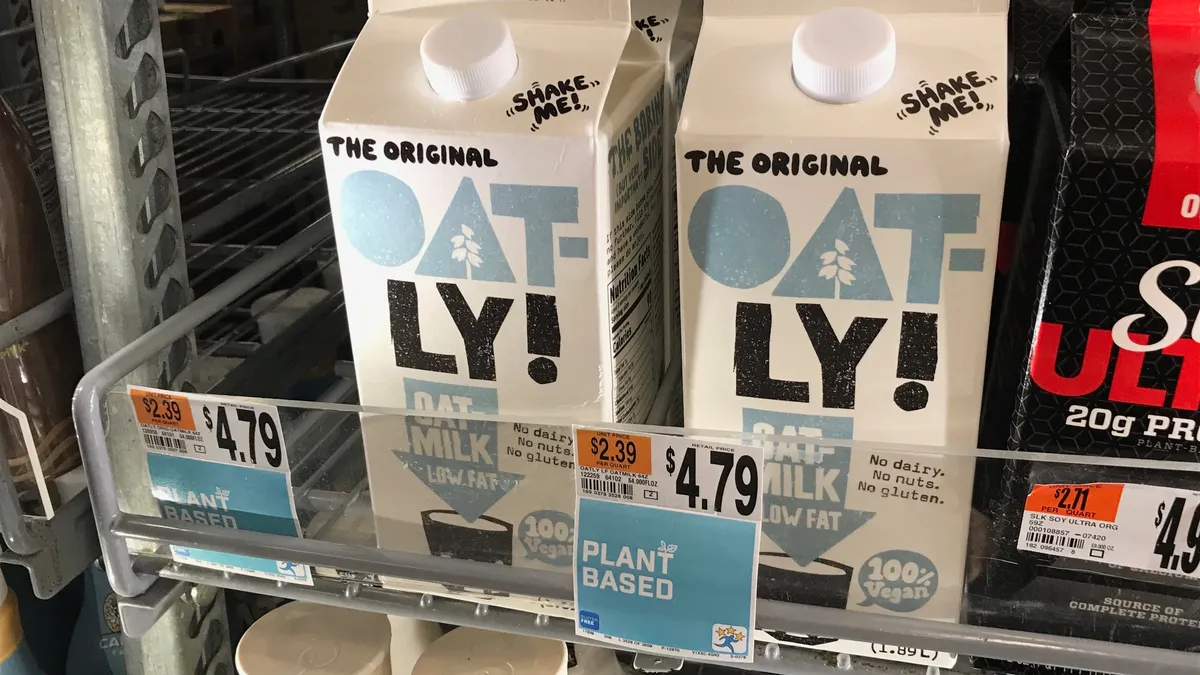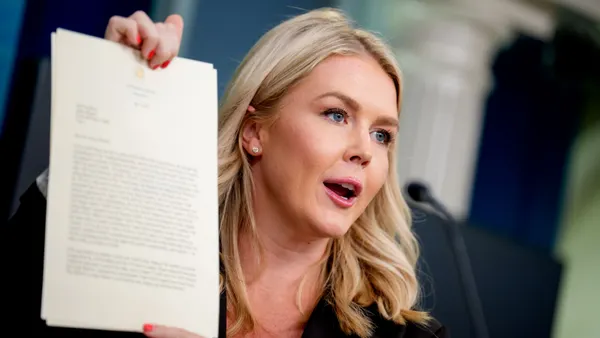Dive Brief:
- Oatly, the oat drink maker, appointed Marie-Jose David, 51, as its next CFO, effective Oct.1, the company announced Monday.
- David succeeds Christian Hanke, who has served as the company's finance chief since 2020. Hanke assisted with the search process after he decided to step down from the company, to “pursue other opportunities, and not due to any disagreement with the Company’s management or Board,” according to a filing with the Securities and Exchange Commission.
- Incoming finance chief David comes to Oatly after another CFO role at Mars Veterinary Health International, a division of Mars Petcare, where she served from September 2020 to June 2023. Before that, she was CFO at Pandora jewelry, the filing said.
Dive Insight:
Since its initial public offering back in May of 2021, the Swedish oat milk maker has experienced some supply chain headwinds in recent years.
Just two months ago, the company appointed a new CEO — Jean-Christophe Flatin — and said it was “ready to play offense in 2023” in their May 9 earnings call for the quarter ended March 31.
The company is still losing money, however; Oatly reported revenue of $195.6 million, a 17.7% increase compared to the prior year period, and net losses were $75.6 million compared to net loss of $87.5 million in the prior year period.
“In the upcoming quarters, we plan to increase our investments in exciting demand-generating initiatives to ensure that we maintain our momentum in the marketplace. Given our solid first quarter performance and our expectations for continued momentum, we are reiterating our 2023 guidance,” said Toni Petersson, the company’s then CEO and now co-chairman on the call.
The company is expecting revenue growth of 23% to 28% for the year compared to its full year 2022, according to its earnings report.
David is taking the financial helm as the company recently launched plant-based cream cheese in the U.S. last month.
Meanwhile, inflation has hit the plant-based food industry hard as these companies tend to be smaller with not as much financial backing to lean on in hard times. Therefore, prices tend to be more expensive, CFO Dive sister publication Food Dive previously reported.












